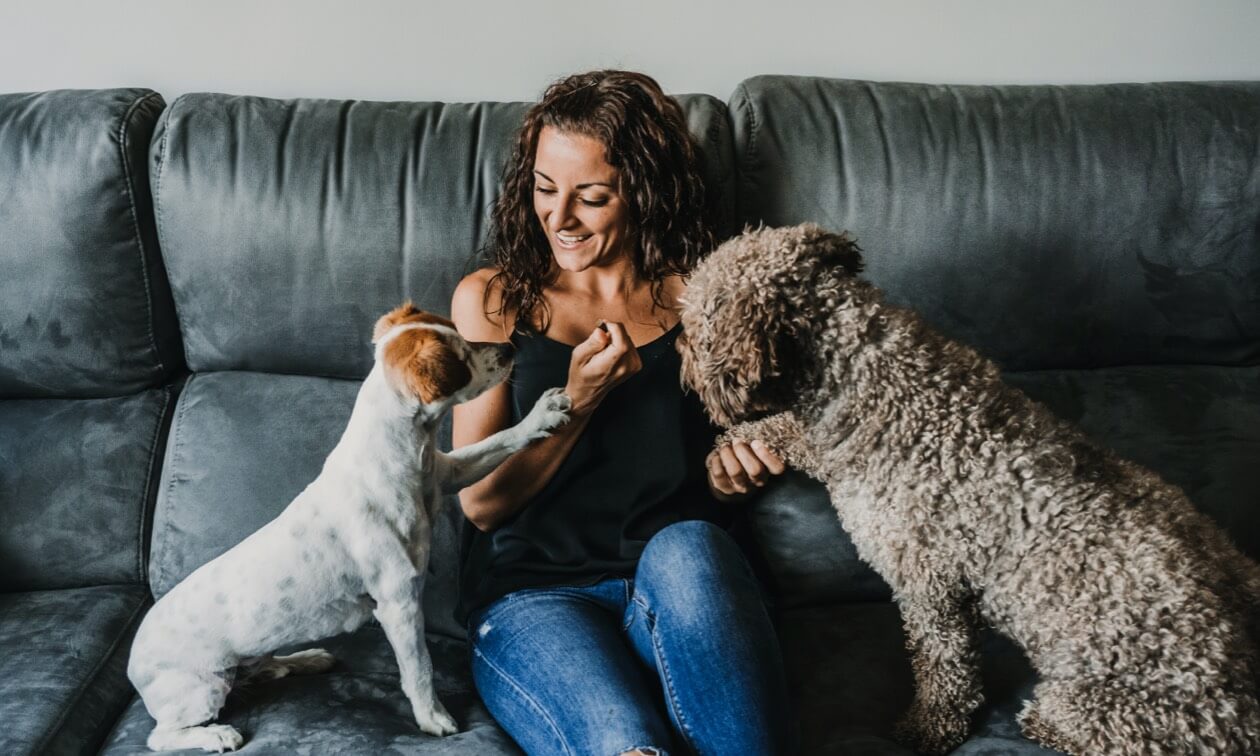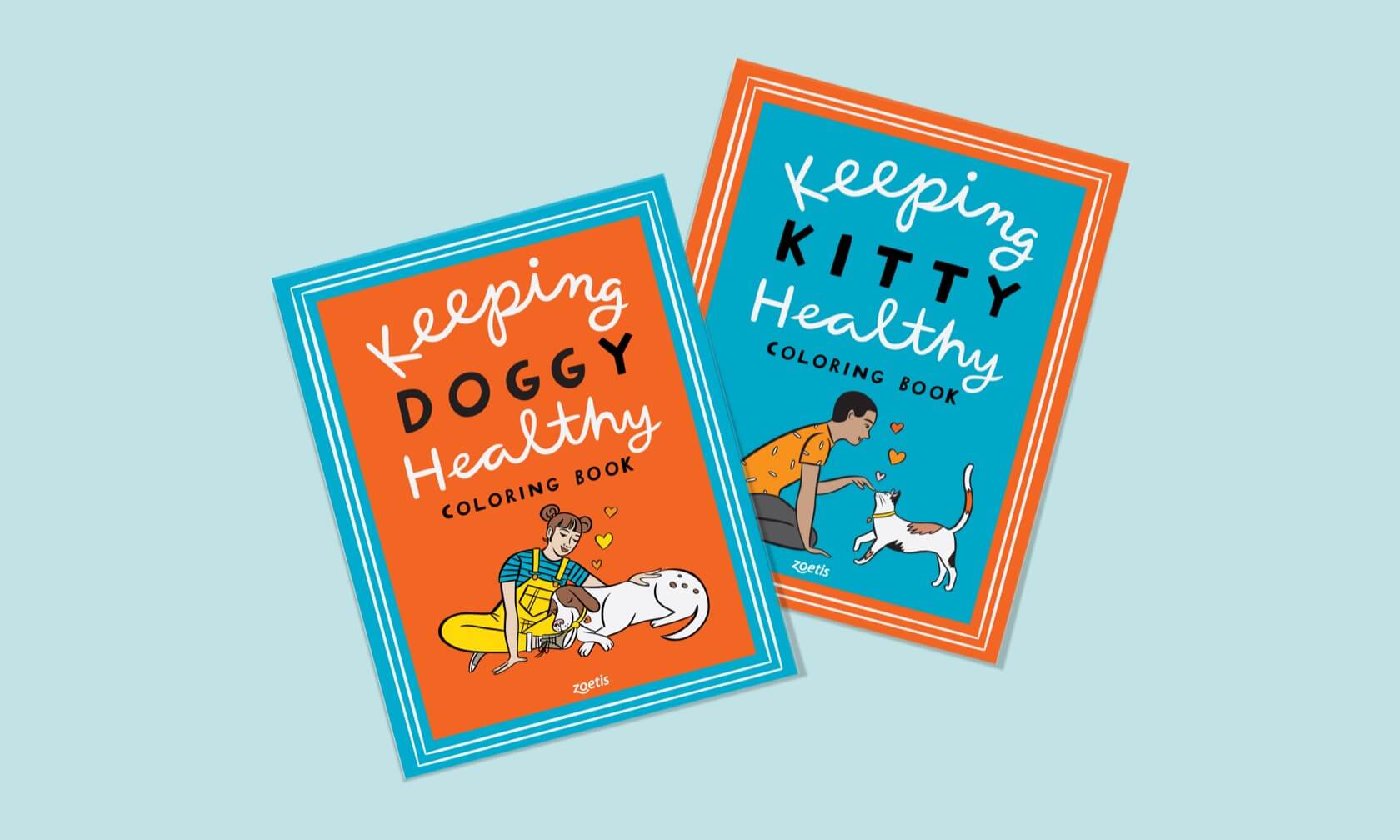Let’s face it — we come up with some odd sayings. Some make sense, while others are “out there”. Many of these idioms and sayings include references to our best furry friends. Do you know why you say things like, “I’m going to take a cat nap” and “You’re in the doghouse now?”
Here are some of the most common pet sayings and thoughts about their origins.
Popular Cat Sayings & Idioms
Cat Nap
Definition: A short sleep.
Origin: It’s thought that this phrase comes from ancient Egypt, where cats were considered sacred, and people wanted to emulate their behavior. This led to short naps throughout the day, as a cat would do.
The Cat’s Meow
Definition: Too great for words.
Origin: Thomas Dorgan is the cartoonist often credited with bringing this saying into popular culture.
Cat’s Got Your Tongue
Definition: Referring to someone who isn’t speaking.
Origin: One possible origin for this saying comes again from ancient Egypt. If you were a liar, your tongue might have been removed and fed to a cat.
Cat’s Pajamas
Definition: Excellent.
Origin: Apparently, in the 1920s, it was all the rage to come up with silly sayings combining human and animal ideas. This was the result, along with “bee’s knees” and others.
Cat Has Nine Lives
Definition: Cats can survive dangerous situations.
Origin: One of the more pleasant suggested origins comes from ancient Egypt. The Egyptian sun god would take the form of a cat and visit the realms of hell. He gave birth to eight gods meaning one cat was responsible for the lives of nine gods.
Let The Cat Out of The Bag
Definition: Sharing a secret.
Origin: This isn’t a fun one. Long ago, merchants at the market would sell piglets in bags. Cats were less valuable to them at the time. They’d sometimes put a cat in the bag instead to trick buyers. If you caught them, you’d let the cat out of the bag.
Cat On a Hot Tin Roof
Definition: A restless or jumpy person (or animal).
Origin: Before ovens, people used to bake on bakestones. These were very hot stones. As you can imagine, a cat inclined to jump up on the stone would have a jumpy reaction. This led to the phrase “cat on a hot bakestone.” Later, tin roofs, which can also get very hot, came into fashion, and the saying morphed.
Popular Dog Sayings & Idioms
Gone to The Dogs
Definition: Decreasing in quality.
Origin: Historical accounts tell us that ancient China didn’t allow dogs in their cities. They were kept outside the city walls. Criminals and the like were sent out of the cities as well to live with the dogs.
Let Sleeping Dogs Lie
Definition: Leave it alone to avoid trouble.
Origin: While it may have originated earlier, Geoffrey Chaucer says, “It is nought good a sleepyng hound to wake.”
Working Like a Dog
Definition: Working very hard.
Origin: Sometimes it refers specifically to working hard with no pay. This one is pretty self-explanatory. It’s said to have originated in the 1700s. Throughout history, dogs have been tasked with jobs like herding, hunting, and protecting. And they worked hard!
Every Dog Has Its Day
Definition: Your moment will come.
Origin: While the origin isn’t clear, it can be traced back in history to before Shakespeare used it in “Hamlet.” It was used in a book from 1545 called “Erasmus Adages” where the author says, “a dogge hath a day.”
Dog Days of Summer
Definition: Hottest days of the year.
Origin: This saying is said to have originated from the Romans, who noted the warmest days coincided with the Dog Star, Sirius, being visible in the sky. This star is part of the Canis Major constellation. Interestingly, there is a Greek word, “Seirios” that means scorching.
Can’t Teach an Old Dog New Tricks
Definition: You can’t change a long-lived behavior or expect changes in older people or pets.
Origin: While the origin is unclear, a similar reference was found in 1534’s The Boke of Husbandry where instructions are provided for what a shepherd should teach their dog. “The dogge must learne it, whan he is a shelpe or els it will not be: for it is harde to make an olde dogge to stoupe.” In other words, it’s difficult to teach an old dog a new behavior. (Though now we know there are many ways to teach old dogs great new tricks!)
In The Doghouse
Definition: Someone being in trouble.
Origin: By some accounts, the phrase is first used this way in “Peter Pan” by J.M. Barrie in 1911. He references Mr. Darling forcing himself to sit in their dog’s kennel as punishment for letting his children be kidnapped.
Barking Up the Wrong Tree
Definition: Pursuing a mistaken line of thought or course of action
Origin: This phrase is thought to originate from the behavior of 19th-century hunting dogs who would stand at the base of a tree and bark, alerting the hunter to prey in the tree. Sometimes the dogs would move from tree to tree, even though the prey was in the original tree, leaving them barking up the wrong tree.
Other Pet Sayings & Idioms
Raining Cats and Dogs
Definition: heavy rain.
Origin: This is one with many possible origins. An interesting suggestion is that in the time of thatched roofs, cats and dogs would burrow into the thatch for shelter. During heavy rain, they would abandon or be washed out of their rooftop hiding spots giving the appearance of raining cats and dogs.
Pet Peeve
Definition: Minor issues that cause annoyance.
Origin: This saying is tied to a comic strip by Frank King called The Little Pet Peeve.
Teacher’s Pet
Definition: A disparaging term for someone seen as a teacher’s favorite student.
Origin: This phase was first noted in the 1920s.
And the list goes on. We’ve truly woven animals into the very center of our language. This just goes to show the important role they play in our lives.
ZPC-02356R1



